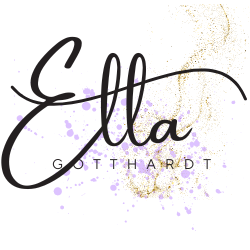From workflow to editing to business — these tools make running an art practice smoother, clearer, and more sustainable.
Building an art career today means navigating far more than canvas and brushes. Good digital tools help you stay organized, present your work professionally, and run your creative business with far less friction.
Here are ten practical tools that artists can use to simplify their workflow and focus more on making art.
1. Notion – Your Digital Studio Hub
Notion works as an all-in-one workspace for planning collections, tracking commissions, organizing ideas, and managing long-term projects.
Its flexibility makes it ideal for artists who juggle multiple tasks and want everything in one place.
Best for: project management, planning, notes, content calendars
2. Canva – Branding, Layouts & Easy Design
Canva is perfect for creating visual assets without needing advanced design knowledge: mockups, shop banners, Pinterest pins, product sheets, art print layouts, or simple graphics for your website.
Best for: mockups, print layout, marketing visuals, color palettes
3. Photoshop – Professional Artwork Editing
For artists who sell prints or need polished artwork photos, Photoshop remains the industry standard.
You can adjust colors, clean up scans, prepare high-resolution files, and keep consistent print quality.
Best for: editing scans, preparing fine art prints, retouching artwork photos
4. Lightroom – Fast, Clean Art Photography
Lightroom makes it easy to correct lighting, color, contrast, and perspective when photographing artwork.
Especially useful if you photograph originals for your shop.
Best for: quick editing, consistent white balance, batch photo adjustments
5. Clipchamp – Simple Video Editing
For process videos, studio clips or Reels, Clipchamp offers a straightforward interface without the complexity of full video editors.
A good option for artists who want fast, clean results.
Best for: cutting and exporting videos, basic edits, social content
6. iLoveIMG – Quick Image Tools
A lightweight tool to resize, compress or convert images before uploading them to your website or shop.
Saves time and ensures your site loads quickly.
Best for: resizing images, compressing artwork photos, format conversions
7. WordPress + WooCommerce – Flexible Website + Shop
WordPress gives full control over your website, and WooCommerce integrates a customizable online shop.
Ideal for artists who want independence from marketplaces and full ownership over their sales channels.
Best for: running an art website, selling prints/originals, SEO
8. Google Analytics & Search Console – Understanding Your Audience
Both tools help you learn where your visitors come from, how they interact with your site, and which pages need improvement.
Search Console also ensures your pages are indexed correctly.
Best for: SEO, analytics, improving website visibility
9. Dropbox / Jottacloud – Delivering Digital Files
Useful for sending digital products such as prints, wallpapers, PDFs, or video files.
Jottacloud is a strong European alternative with a focus on sustainability.
Best for: file delivery, storing digital art, sharing downloads
10. Pinterest – Gentle, Long-Term Marketing
For artists who dislike social media, Pinterest is a calm and effective alternative.
Pins continue working for months, helping new people discover your art without constant posting pressure.
Best for: long-term visibility, traffic to your shop, brand discovery
